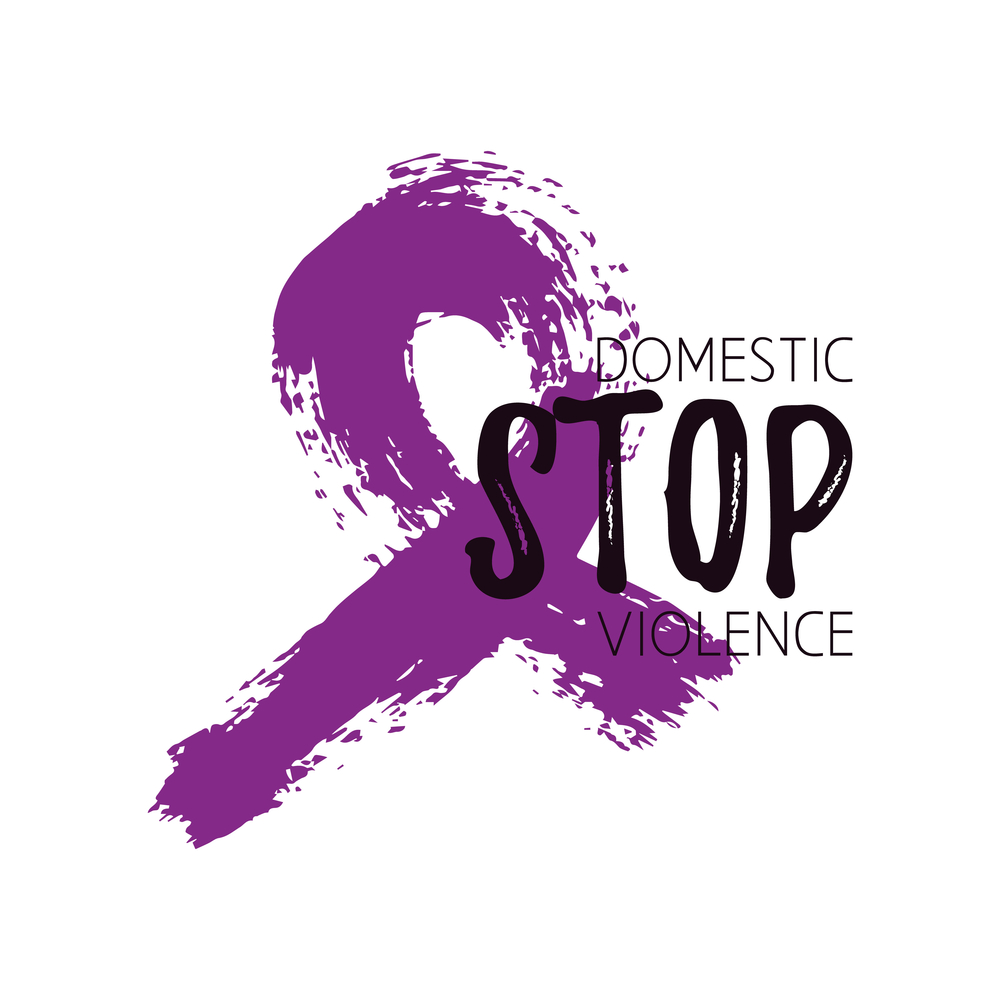Domestic Violence Awareness Month
 October is Domestic Violence Awareness Month. This is an opportunity to bring a difficult subject out of the shadows. This national observance began in 1981 when advocates came together to expose violence that was happening behind closed doors. What originally started as a grassroots effort has now grown into a movement that includes survivors, families, and communities. Domestic abuse has no place in our lives. It must be addressed openly.
October is Domestic Violence Awareness Month. This is an opportunity to bring a difficult subject out of the shadows. This national observance began in 1981 when advocates came together to expose violence that was happening behind closed doors. What originally started as a grassroots effort has now grown into a movement that includes survivors, families, and communities. Domestic abuse has no place in our lives. It must be addressed openly.
Domestic Violence Awareness Month Matters
BonePage.com is all about healthy, consensual, and sexy human interactions. We celebrate passion, intimacy, and connection, but we draw a hard line: domestic violence is never sexy, never healthy, and never a solution. Love and lust should be fun, and build us up, not tear us down.
Domestic Violence Awareness Month is important because it reminds us that abuse takes many forms. Sadly, many people suffer in silence, feeling isolated and alone. Some scars are obvious, while others are hidden. Domestic violence has a tendency to escalate over time, especially when left unchecked. We urge you to seek support if you are being abused. Likewise, if you are an abuser, help is available. We all owe it to ourselves and to our loved ones to seek the help we need most. Do it, before it is too late.
Warning Signs and Hidden Struggles

While awareness has grown, many domestic abuse survivors still stay silent. Some don’t feel financially able to leave. Some want to try to work it out. Others face family or cultural stigma. Separation or divorce is frowned upon in some religious communities. For members of the LGBTQ+ community, there’s the added fear of being outed or dismissed. Don’t forget that men, too, can be victims and often are—yet they often face disbelief or ridicule when they speak up. Domestic violence isn’t about gender. It’s about control and it truly knows no boundaries.
The Victims of Domestic Violence

Beyond those figures, the National Intimate Partner and Sexual Violence Survey shows that nearly half of U.S. women and men—48.4 % and 48.8 % respectively—have experienced psychological aggression by an intimate partner at some point in their lives. About 24.3 % of women and 13.8 % of men have faced severe physical violence (for example, being beaten, choked, or burned) at the hands of a partner.
But domestic violence doesn’t just target adults. Children are deeply affected, directly or indirectly. Each year, more than 5 million children in the U.S. witness domestic violence in the home. In recorded cases of child abuse and neglect, over 550,000 children are officially identified each year. Witnessing or directly experiencing household violence increases a child’s risk for long-term mental health challenges, difficulties in school, and potentially repeating cycles of abuse later in life.
Challenges Faced by Domestic Violence Victims
Each of these victim groups—women, men, and children—face distinct obstacles in seeking help.
Women often experience fear of retaliation, financial dependency, or ingrained guilt or shame. They may worry that no one will believe them, or that leaving would make things worse for themselves or their children.
Men confront a different kind of isolation. Societal expectations often portray men as strong and in control. Admitting abuse may feel emasculating or could lead to ridicule. Many men fear they won’t be taken seriously by law enforcement, shelters, or even friends. Some even question whether their experiences “count” as many just keep quiet and endure the abuse.
Children are the most voiceless of all. They depend on adults—often the very people involved in the violence—for their basic needs. Many children lack the vocabulary or emotional awareness to describe what’s happening, and they may fear being punished, separated from family, or not believed. They may believe the abuse is normal, sometimes internalizing the guilt, thinking “if I just behave better…”
If You’re Living With Abuse
No one should ever continue living in an absive relationship or feel trapped in fear. If you are in such a situation, here are some practical steps that may help:
- Call 911 in an emergency. If violence erupts suddenly, your immediate safety comes first.
- Reach out for support. Whether it’s a trusted friend, a family member, or a confidential hotline, connection can break the isolation.
- Have a safety plan. Keep copies of important papers, cash, and medications where you can reach them quickly.
- Know your digital safety. Use devices your abuser can’t monitor, and clear your browser history if needed.
- Consider legal protections. Restraining and protective orders can give victims a shield against continued threats. Free legal aid services may be available in your community. Reach out to our resources or do your own research to see what resources are available in your area.
Finding Resources
- National Domestic Violence Hotline: 1-800-799-SAFE (7233) or text “START” to 88788
- National Sexual Assault Hotline: 1-800-656-4673
- TheHotline.org – provides a hotline and directory of local resources and support.
- WomensLaw.org – provides legal information for all victims of abuse (men or women).
- Most cities have local shelters and crisis centers—don’t hesitate to search for help nearby.
- Local law enforcement and the courts will be able to provide access to any local shelters and resources.
Friends, Family and Bystanders

If you suspect abuse, the way you approach the conversation can make a big difference. It’s best to come from a place of compassion rather than confrontation. A gentle statement such as, “You seem stressed—are you okay?” This opens the door for discussion without judgment. Survivors often carry heavy feelings of shame and fear. Listening patiently is more valuable than pressing for immediate details. Let them set the pace. At the same time, it’s important to affirm their worth with reminders that they do not deserve to be mistreated and that they are not alone.
Sometimes, the most important role friends and family can play is simply to remain present. Abusers thrive on isolation, convincing victims that no one else cares or believes them. By staying supportive, patient, and consistent, you become a lifeline. Even if the victim is not ready to act today, your willingness to listen and stand by them may give them the strength to reach for help tomorrow.
Emergency Situations

If children, elders, or vulnerable adults are involved, reporting to protective services may be required by law. In less urgent cases, a call to the police non-emergency line or reaching out to a domestic violence hotline can help you figure out the safest path forward.
The Road Ahead
Leaving an abusive relationship is rarely easy, but it can be done. Healing is possible, too. Survivors often discover support groups, therapy, and community spaces where they can rebuild confidence, joy, and even rediscover intimacy on their own terms. That’s the future BonePage believes in: one where connection is mutual and every interaction is rooted in respect.
Remember that domestic violence thrives in silence. By talking about it, we break the cycle.
About the Author
Quinn Collins, Lead Research Journalist
Quinn Collins is a highly-regarded research journalist who attended journalism school at Columbia University and is based in New York City. With over two decades of experience in the field, Collins has established a reputation for his insightful coverage of political, First Amendment, and equality issues in the United States. We are pleased to have Quinn as a member of the Bonepage team.
Collins brings a wealth of knowledge and expertise to the subjects he covers, and his writing style is both engaging and informative. Whether it’s breaking down the latest political developments or exploring the legal complexities of First Amendment rights, Collins is dedicated to delivering accurate and impactful journalism that informs and inspires. His commitment to social justice and equality has made him a leading voice in the ongoing conversations about these important issues, and he continues to push for progress through his reporting.




6 thoughts on “Domestic Violence Awareness Month”